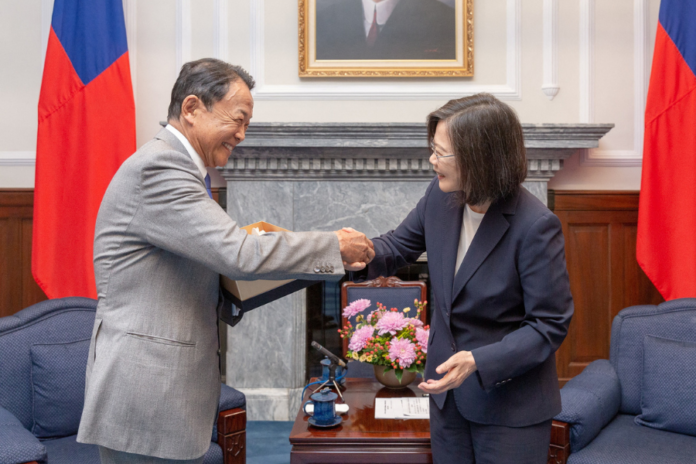According to four sources, Japan has elevated security ties with Taiwan by appointing a serving government official to serve as its de facto defence attache. China, which claims the strategically important, democratic island as its own, is expected to take offence at this decision.
The Japan-Taiwan Exchange Association in Taipei, which is primarily staffed by reassigned foreign and commerce ministry officials, manages Japan’s bilateral ties in place of the country’s official diplomatic mission in Taiwan. To avoid provoking China, the defence attache position has, up until now, been filled by a retired Japan Self Defence Force officer.
According to officials, who requested anonymity due to the delicacy of the subject, he has been accompanied by a representative sent by the defence ministry to improve intelligence collecting and communication with Taiwan’s military.
According to one of the people who is aware of the appointment, it is also “symbolic” of Japan’s support for Taiwan. He continued, “Taiwan has requested an active duty defence official to occupy the role.
The fact that the move to boost defence ties with Taiwan was abandoned last year following a Japanese media article about the proposal, highlights Japan’s concern over China’s response.
The defence ministry of Japan stated that it would only seek “non-governmental” links to Taiwan, a colony of Japan from 1895 to 1945, if they fell within the parameters of a joint agreement made in 1972 that acknowledged Beijing as the only legitimate government of China.
When questioned about the new defence attaché, Taiwan’s Ministry of Foreign Affairs declined to comment, but said that it “will continue to deepen cooperation with similar-minded partners such as Japan.”
An inquiry for comment was not immediately answered by the Chinese foreign ministry.
Tokyo is uneasy about Beijing’s growing military presence near the island, which is only 100 kilometres (62 miles) from Japanese territory. It is concerned about being involved in any confrontation that would endanger the adjacent sea routes that bring the majority of Japan’s oil.
On its approach to the western Pacific, a Chinese naval formation commanded by the aircraft carrier Shandong reportedly sailed within 60 nautical miles of Taiwan’s coast on Monday.
Concern about these manoeuvres has led to requests for Japan to establish security ties with Taiwan, including direct military contact that may aid Japan in crisis planning.
However, Beijing might view any strengthening of links as an intrusion into its domestic affairs.
When Nancy Pelosi, then the speaker of the U.S. House of Representatives, visited Taiwan in August of last year, China retaliated with military drills that included missile attacks in the vicinity of Japanese islands.
Four months later, the government of Japanese Prime Minister Fumio Kishida unveiled Japan’s largest military buildup since World War Two, with a doubling of defence spending over five years to pay for the development of advanced fighter jets, longer-range strike missiles, and stockpiles of ammunition and spare parts that it would require in a protracted conflict.
His government stated that the stability of the world depends on the Taiwan Strait being peaceful in an accompanying national security assessment.
China has attacked Japan, the United States, and other Western countries for embracing what it refers to as a Cold War mentality.
Although a number of parliamentarians have recently travelled to Taiwan in an expansion of unofficial travel aimed to show support for the island, no top Japanese government officials have yet visited Taiwan.
Aso Taro, a former prime minister and vice president of the ruling Liberal Democratic Party, visited Taiwan last month and met with Taiwan President Tsai Ing-wen as part of that legislator diplomacy.
Aso stated at a forum that Japan must demonstrate “resolve to fight” for Taiwan. The comment, according to Beijing, was detrimental to “the political foundation of China-Japan relations”.



